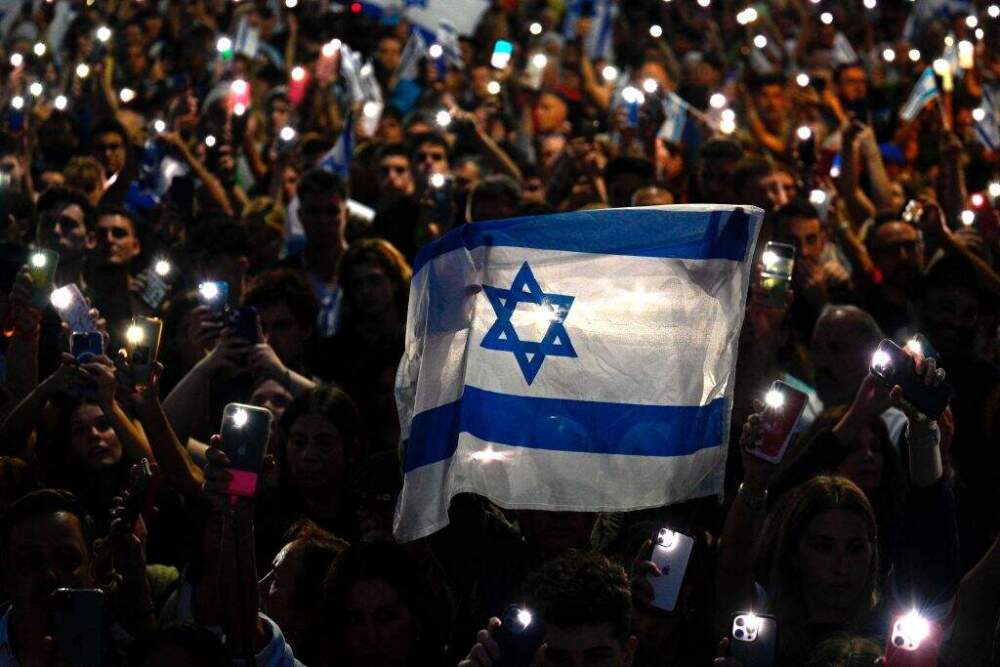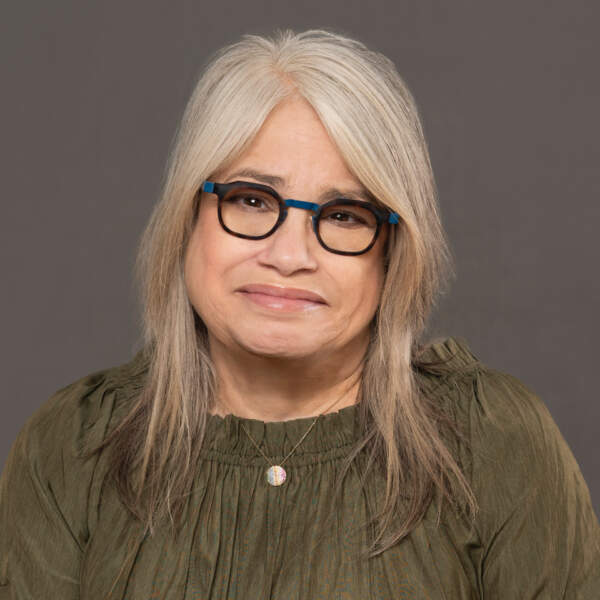Advertisement
Commentary
As I say a prayer of mourning, my heart is in the East

My heart is in the East — a heart flying over oceans and rivers and seas to reach Israel. I feel the weight of Jewish history writing this piece. I have no words for the horrific murders of Israeli children and women and elderly, some of them massacred in their homes.
Jewish history can often feel as if it is on a cursed loop. I’m thinking of the pogroms from which my father’s family escaped; I’m remembering the Holocaust — a word I don’t casually bandy about — as we are here again, witnessing crimes against humanity.
Grief is a muscle memory for us Jews.
Israel was attacked early Saturday morning — Shabbat and, as it happened, the joyous holiday of Simchat Torah, where people often dance in the streets of Israel cradling a Torah. In synagogue, we celebrate having finished reading the entire Torah over the year and thus beginning a new cycle of reading our sacred scrolls, starting with the first chapter of Genesis. Another loop of history.
I want to transform stories of Israelis brutalized, mutilated and murdered — Israel, terrorized — into an improvised Mourner’s Kaddish, or prayer of mourning, for my brothers and sisters. For the world.
Grief is a muscle memory for us Jews.
This is the worst attack on Jews since the Holocaust.
I need more words than I have. I need a surplus of words to tell you about dead Israeli bodies on the side of roads. I need words to tell you about the Israeli grandmother wrapped in a pink blanket driven away from her kibbutz in a golf cart by Hamas terrorists. My Facebook feed is full of pictures of beautiful, young families, all slaughtered in their homes on their kibbutzes, and young adults who were gunned down at a concert for peace. As the number of casualties rise, I feel more and more helpless.
I, for whom the state of Israel has always existed as a haven for Jews, do not dare offer answers to this barbarity. I can only grieve and pray for my dead, my wounded and those taken hostage.
I will honor those Israelis — my family — by telling you about the other Israelis and Palestinians fervently working for peace. Boots on the ground; they are not fighting but walking a path towards reconciliation. In grassroots organizations such as the Parents Circle Families Forum, Israeli and Palestinian parents, who have lost their children to violence in the conflict, bond in their grief.
I want to recognize the mothers. In Israel there is a group called Mothers Against Silence. It is a gathering of women who want peace as they support their children who serve in the Israel Defense Forces. Everyone has their politics, and everyone prays that their child comes home alive. These mothers in Israel link metaphoric arms with Palestinian mothers whose children have died violently.
I cry for the mothers desperately looking for their dead children on the Gazan border. I cry for the mothers hoping to catch a glimpse of their kidnapped children paraded by Hamas through Gaza as macabre spoils of war.
I want to highlight a couple of other peace organizations, including Shorashim – Roots. Settlers on the West Bank and their Palestinian neighbors have partnered together in the name of peace. Shorashim has built a center where there are lectures on Judaism and Islam, after school programs, a youth group, summer camp, a women’s group and more. When I worry that the Israeli-Palestinian conflict is intractable, I visit their website, and find hope.
It makes me think hope too, can be another loop of Jewish history.
The Sulha Peace Project brings together faces and words to form friendships and lay the groundwork for meaningful dialogue — things that too often disappear in a vacuum when people designate strangers as “other.” Founded in 2000 amid the Second Intifada, the project brings together Israelis and Palestinians living on both sides of the security barrier. The word sulha means to “make peace” and “reconciliation” in Arabic. As old as the Middle East, sulha is an ancient peace process integral to Arab desert culture. The word is aspirational, inspiring people to cultivate pluralistic communities in Israel and the West Bank.
Anne Frank, who was wise beyond her years, famously said, “In spite of everything, I still believe that people are really good at heart.” I see it close to home, in the audience who rose from their seats and sang the Hatikvah (the Hope), Israel’s national anthem, after a curtain call for “Prayers for the Republic of France” — play addressing antisemitism in France that recently finished its run at the Huntington Theater.
We, the Jews, have been fighting for our survival for over 2000 years. And as I’ve heard so many times in these last few days: Am Yisrael Chai. It means, “the people of Israel live.” It makes me think hope too, can be another loop of Jewish history.
As the final words of the Mourner’s Kaddish extol: “May the One who brings peace to the universe bring peace to us and to all the people Israel. And let us say: Amen.”
May peace, and hope, be with us today and always as the unimaginable dawned on a bright Saturday morning.
